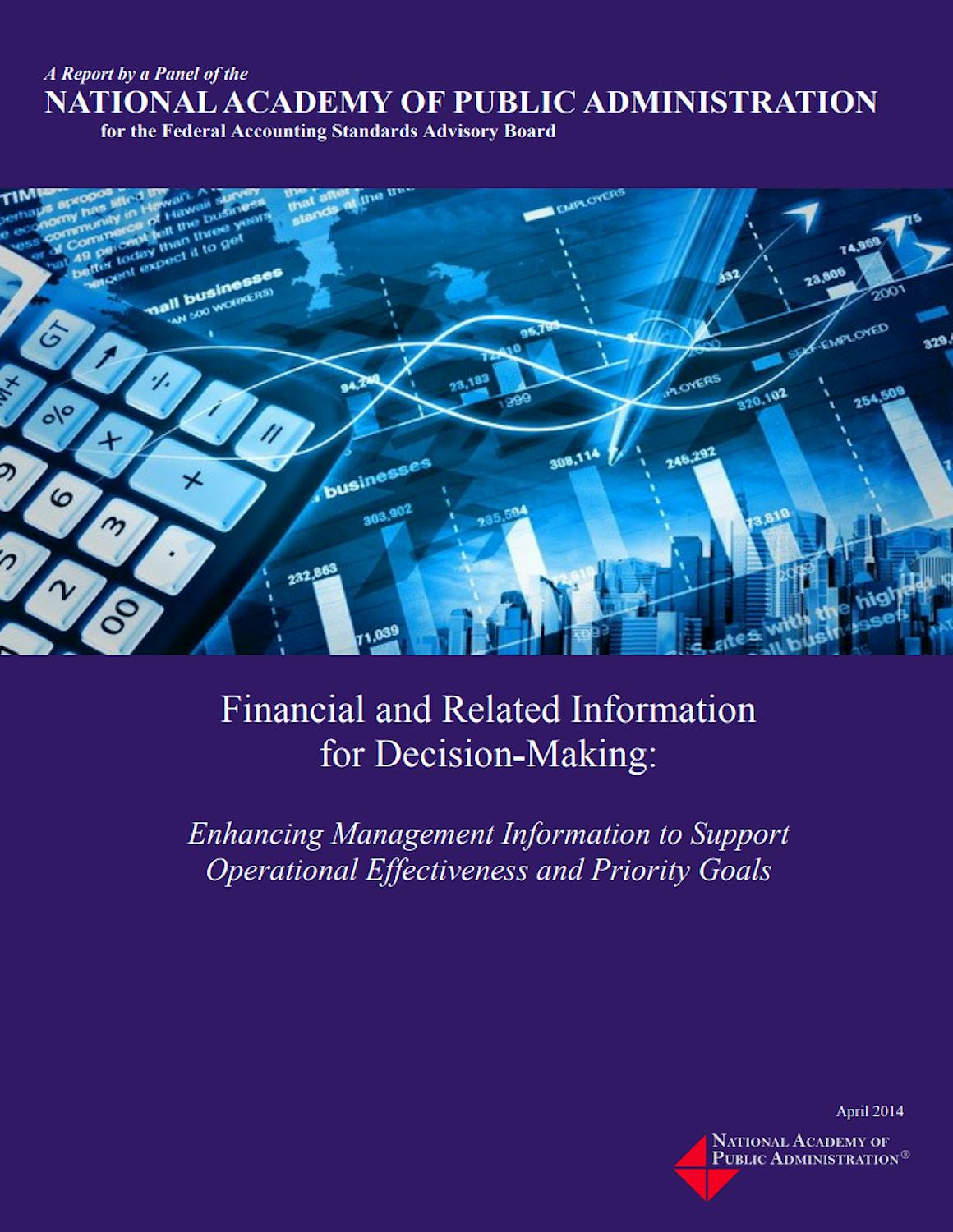
Financial and Related Information for Decision-Making: Enhancing Management Information to Support Operational Effectiveness and Priority Goals
The Chief Financial Officers Act of 1990 and subsequent legislation called for improved financial information and improved financial standards, including a managerial cost accounting standard that requires government agencies to develop the capability to look at the “full cost” of operations. Over the past two decades, significant reforms relating to financial and performance reporting have been made.
The mission of the Federal Accounting Standards Advisory Board (FASAB) is to serve the public interest by improving federal financial reporting. In doing so, FASAB established managerial cost accounting standards in 1995, yet continues to be advised of a need to improve the internal availability of cost information and its linkage to performance information.
FASAB requested that a three-member Panel of the National Academy of Public Administration, chaired by G. Edward DeSeve, determine how federal executives and senior managers currently use financial and related information, what gaps they see that impact their ability to manage effectively, and what opportunities exist to close those gaps.
Click the button below to view the View Study Report.
View ReportKey Findings
- Data generally are highly accurate and granular, but federal agencies face challenges in analyzing and transforming data into readily understood, actionable information for executive decision-making--especially the linking of budget, costs, and performance.
- The degree to which financial data are effectively used for decision-making is heavily driven by each organization’s revenue source and operational approach. Agencies tended toward one of two general camps: 1) user fee-based revenue and/or production-oriented, direct operations agencies, where external pressure for transparency fosters the creation and use of financial and cost analysis for decision-making by executives and senior managers; and 2) appropriations-based revenue and/or regulatory, policy, and grant-making agencies, which generally have fewer needs for detailed financial and cost analysis. Both types of agencies can utilize financial data more effectively if leadership instills a culture that pays attention to costs and performance by creating structures and incentives that encourage employees to carefully examine these issues.
- CFO organizations will increasingly need to offer valuable decision-making support to executives and senior managers. They should continue to evolve from a legacy core focus on transaction processing and compliance to a more modern approach that features sophisticated cost and performance analysis tailored to the decision-making requirements of agency leadership.
Recommendations
- Federal agencies should strengthen the CFO staff’s knowledge of program operations in order to increase their ability to act as business partners to agency program leadership.
- Federal agencies should emphasize development of the CFO staff skillsets to ensure that traditional accounting is augmented by data analytics.
- In order to connect financial and cost information to program outcomes, federal agencies should link budgeted resources to costs, outputs, and performance.
- In order to ensure that relevant information is available in a readily accessible and user-friendly format, federal agencies should develop financial and programmatic dashboards specifically tailored to the decision-making requirements of executives.
- Federal agencies should enhance existing reporting systems to integrate financial, operational, and HR-related information.
- Congress and OMB should create specific legislative and regulatory catalysts, such as the 2009 American Recovery and Reinvestment Act reporting requirements, to focus agency attention on developing clear cost and outcome data.
